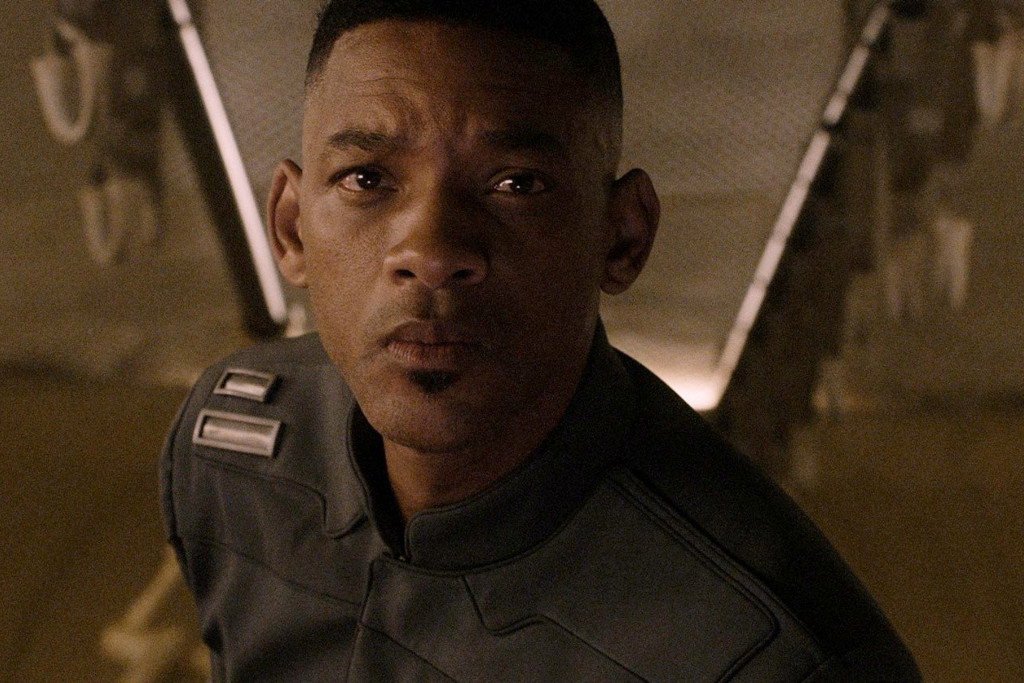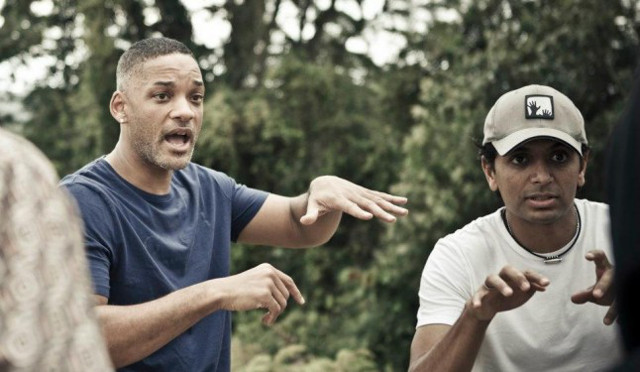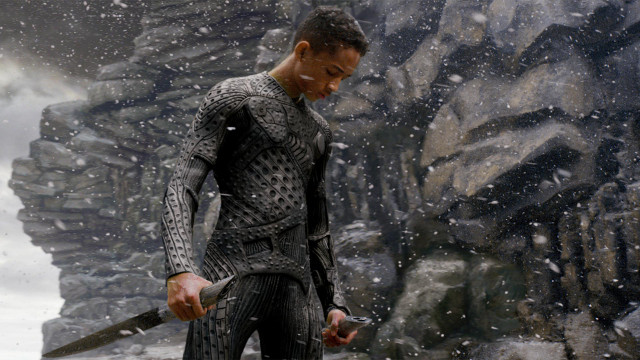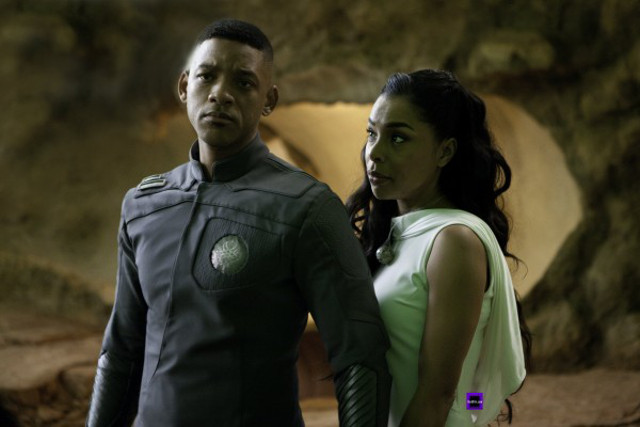Five Things ‘After Earth’ Teaches Us About The Future
'Cause there's not much else to take away from Will Smith's new movie.

“Danger is real”, Will Smith wisely informs us in his new blockbuster, After Earth. “Fear”, however, “is a choice.” Apparently, it is a construct that our minds invent to prepare us for something that “may or may not happen in the future.” That is just one of many moments in the latest film from director and co-writer M. Night Shyamalan that attempts profundity, but ends up mundane.
Much has been made about the film’s philosophical resemblance to a Scientology recruitment meeting. I can’t vouch for what it is or isn’t in that context, but what I do know is that After Earth can teach us a thing or two about what the future is going to be like. Let’s take a look…
–
1. Smith family reunions are going to be awkward!
After Earth is basically an intergalactic Smith family reunion. Like most family get-togethers, it is rather dull; a pompous, self-important bore from which nobody gets out with reputations intact. Will Smith stars and claims a story credit, while sharing producing honours alongside wife Jada Pinkett and brother-in-law Caleeb Pinkett. Not only that, but the film’s entire raison d’être appears to be to present Will’s 14-year-old son, Jaden, as a Movie Star and let the world in on their carefully-tailored, all-star, all-rapping jamboree. It’s a shame Jaden looks and sounds as disinterested as audiences will inevitably be.
–
2. Genetically-superior beings descended from Will Smith.
As if the Smith family, and Will especially, didn’t already have a superiority complex, After Earth posits him as a god-like being with the ability to more or less walk on water. He sweeps through a warzone without getting a scratch on him while his more, ahem, earthbound son struggles with the enormity of his bloodline. For a film that cost $130 million, I hope Jaden got paid enough to cover his daddy issue psychiatric costs for a lifetime.
–
3. Women have regressed dramatically.
Here’s a startling statistic: there are two women in After Earth. Furthermore, one of those women is dead before the opening credits have even started. The other is the role of Will Smith’s wife, played here by Sophie Okonedo with a kind of dignified sadness that makes her disappointment in the role so very obvious in every worthless scene. Okonedo is little more than a quiet housewife wearing sexy body-hugging dresses as she prepares dinner for the patriarch of her space family and spouts wise motherly advice in whispered, submissive tones. Apparently, Earth’s future military have dropped their female recruitment efforts, too.
–
4. Humans haven’t evolved.
Despite being set 1000 years into the future, where the human population have deserted a ravaged Earth and moved into extravagantly futuristic cities and all the scientific advances that implies, human beings in After Earth have remained very much the same as Earth 2013. Even language and slang have failed to evolve — “That sucks!” cries Jaden Smith at one point — and anybody who was alive when “Cowabunga!” was a thing will know that’s simply impossible. Trends exist in space, too! Even more curious is that we’re told (repeatedly) that the wildlife on Earth has evolved to hunt humans; what they don’t explain is how that could be the case given humans haven’t lived on Earth for a millennium. Hmmm.
–
5. Metric system wins!
Turns out kilometres, litres, and Celsius have overtaken the standard American practice of miles, ounces, and Fahrenheit as measuring scales. That’s a win for fans of numbers divisible by ten everywhere. I can’t say whether it is the film’s artistic decision to imply that eventually the metric system sensibly won out, or if the studio mandated the change in reaction to the international box office’s growing importance to studio profit margins, but it’s interesting nonetheless.
And, truthfully, if that decision is the most interesting element in your film — not, say, the story (which could have used one of Shyamalan’s famed twists to liven things up), the effects (which look like plastic CGI), or the actors (you hire Will Smith and all he does is sit and scowl?) — then you have a severe problem.
–
After Earth opens in cinemas nationally today.
–
Glenn Dunks is a freelance writer and film critic from Melbourne, and currently based in New York City. His work has been seen online (Onya Magazine, Quickflix), in print (The Big Issue, Metro Magazine, Intellect Books Ltd’s World Film Locations: Melbourne), as well as heard on Joy 94.9.


